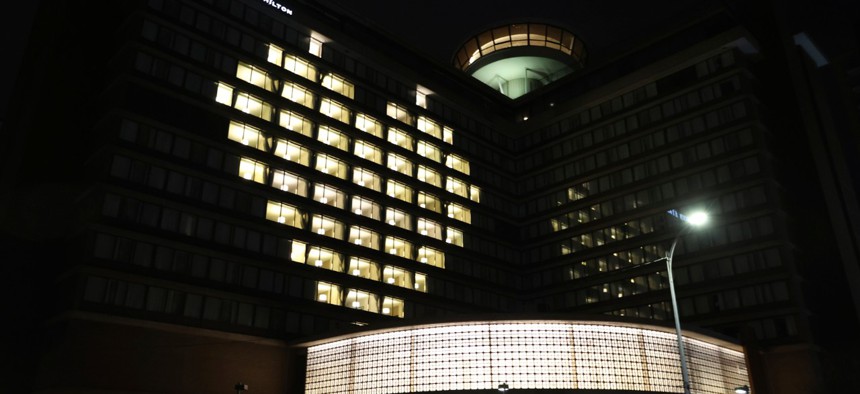
mpi34/MediaPunch /IPX
OPM Reopens Feds’ Annual Giving Drive for Coronavirus Donations
Acting director says the federal workforce can lead by example in helping alleviate some of the strain on charities' resources.
Federal employees can now make contributions through the government’s annual giving drive to support the fight against the novel coronavirus pandemic, as the administration looks to expand a program that has seen declining donations for more than a decade.
The Office of Personnel Management authorized a “special solicitation” for the Combined Federal Campaign, which typically only operates for four months each fall and winter. OPM acting Director Michael Rigas said he reopened the campaign after several agencies reached out to ask how employees could “do even more to help victims affected by the COVID-19 pandemic.” OPM’s regulatory authority enables it to open the solicitation, which it will do through June 30.
CFC raised $83.8 in its 2019 campaign, a decrease of 10% from the previous year and 70% from a decade earlier when federal employees contributed $281.5 million. Contributions have fallen every year since 2009. Ten years ago, one-in-four federal employees donated to the campaign. By 2018, that fell to just one in 25. OPM did not provide data on the number of contributors for 2019. Housing and Urban Development Department Secretary Ben Carson will serve as “honorary champion” for the campaign.
A number of factors, both circumstantial and systemic, have contributed to the campaign’s decline: An increase in the avenues through which individuals can donate to charities, administrative changes by OPM and more financial uncertainty for federal workers have played a role in the CFC's struggles to stay relevant.
In 2012, OPM commissioned a panel to recommend changes to the CFC’s operations to coincide with the program’s 50th anniversary that year. After significant delay and pushback from stakeholders, OPM finally implemented the suggestions in 2017. The changes included popular provisions such as enabling retirees to have donations deducted from their annuities and improving online giving. They also contained more controversial reforms, such as eliminating cash-based donations—essentially ending popular initiatives like office-led bake sales—and phasing out location coordinating committees in favor of larger regional structures.
OPM also began collecting fees up front from participating charities, in addition to a percentage of all donations, to better cover the costs of administering the campaign. As a result, some small charities failed to cover their own costs related to the CFC, according to association groups that help nonprofits navigate the CFC, and fewer organizations are willing to participate.
For the new coronavirus campaign, 100% of donations will go to charities. OPM will not charge its usual distribution fee. Employees can make payroll deduction donations if they did not do so in the 2019 campaign. If they did, they can offer gifts through credit and debit card payments. More than 6,000 charities are currently participating in CFC.
“They also are experiencing challenges due to the pandemic,” Rigas said. “The CFC is uniquely positioned to supplement the federal government’s overall response by allowing employees to pledge additional resources to these vetted charities and to those that are actively responding throughout the world to various community needs as a result of the COVID-19 outbreak.”
OPM called on agency heads to ensure employees are aware of the solicitation through internal communications. It provided talking points to agency leaders, such as the strain on resources many organizations are currently experiencing, the increased demand for nonprofit services, the inability for organizations to engage in normal fundraising and that the federal workforce should lead by example.
“The steadfastness of the federal community is awe-inspiring,” OPM advised agencies to tell employees. “You have continued to fulfill your professional responsibilities and keep our country moving.”
Advisers to CFC charities blame OPM and federal agencies for moving away from personal, peer-to-peer fundraising to a more impersonal structure.
“The picture looking backward has been profoundly disappointing,” Marshall Strauss, CEO of Workplace Giving Alliance, one of the groups that helps charities navigate the CFC, said prior to the 2019 campaign. “OPM has made a series of decisions that have not helped, that have managed the campaign in a way that has driven donors away and has driven charities away.”







